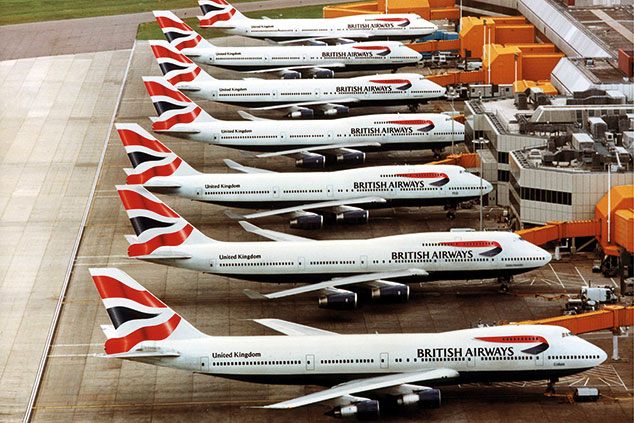
British Airways’ pilots this week embarked on the “first walkout by flight crew in the carrier’s history”, says Graeme Paton in The Sunday Times. The strikes came after its 4,300 pilots rejected a pay offer that the airline claims “would cost it £50m over three years, on top of the 11.5% pay deal already offered”. The union insists that a settlement will cost British Airways (BA) less than the £100m sales the airline stands to lose in the strike.
This is “a textbook example of industrial-relations hubris”, says Simon Calder in The Independent. A union “representing a relatively well-paid group of workers” agrees to an above-inflation deal, “then backtracks and demands more”. At the same time, you have a “highly profitable employer” deciding to ground “virtually all” its flights rather than concede “a few million pounds a year extra on its wage bill”. This dispute “between well-heeled foes who really should have the same direction of travel” does neither side any credit.
Who’s to blame?
It’s unfair to blame the pilots, says Michael Skapinker in the Financial Times. While their salaries may make them “easy targets”, they “are not natural troublemakers” and have a reputation for being “thoroughly professional”. BA also forgets that the pilots helped the airline out in 2009 by voting to accept a pay cut, and that their salaries tend to go towards repaying the “onerous” loans associated with their training. At a time when “the business world faces demands to look after all its stakeholders rather than just shareholders”, BA would have done well to “at least show an openness” to discussing the idea of profit sharing.
Whatever the rights and wrongs of the action, the company should win in the end, says City AM. The strike, and the subsequent damage to both BA’s share price and its “battered brand”, is likely to prove a “necessary blip on the radar in the long-haul” if it helps keep a lid on pilots’ pay. Indeed, every little helps “when you’re competing with the like of Emirates on long-haul and Ryanair and EasyJet on short-haul routes”. In any case, BA has several tangible advantages that are “more permanent than a few PR disasters”, such as 55% of slots at Heathrow airport, still the “airport of choice” for “high-value travellers”.
I’m not so sure, says Chris Bryant on Bloomberg. The pilots may be hoping “that the airline will blink first to spare further damage to its image” and they could be vindicated. They are “still indispensable if you want to take off or land a plane” and “can take advantage of BA’s public image being tainted recently by various IT and… data snafus”. While the strike might not be a big problem if BA remains in the black, things could rapidly get worse if Britain enters a recession and the pound gets even weaker. Parent company IAG is trading at just four times earnings, perhaps indicating that a profit collapse is “on the horizon”.